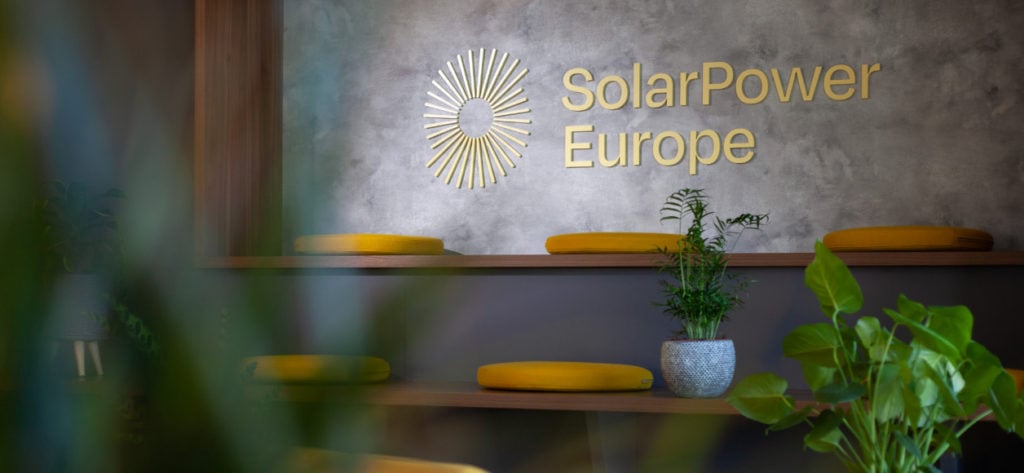
The German government is considering the possibility of imposing trade barriers on Chinese-imported solar modules and components to Europe, a move that has been met with concern by trade body SolarPower Europe.
Reported alongside considerations of subsidies and state aid, according to news agency Reuters, the notion of trade barriers follows an open letter from the European Solar Manufacturing Council (ESMC) calling for the EU to protect European manufacturers against “intentional and purposeful attack by Chinese PV manufacturers” in the form of an influx of cheap products that undercut European prices and force them down.
Try Premium for just $1
- Full premium access for the first month at only $1
- Converts to an annual rate after 30 days unless cancelled
- Cancel anytime during the trial period
Premium Benefits
- Expert industry analysis and interviews
- Digital access to PV Tech Power journal
- Exclusive event discounts
Or get the full Premium subscription right away
Or continue reading this article for free
In the letter, the ESMC explicitly said that Chinese manufacturers had adopted a “dumping stance” over Europe but did not call for trade barriers or US-style tariffs.
Instead, it outlined ‘carrot’ tactics like incentives to buy domestic products and a sanctioned acquisition of European stock to counteract the forced price decreases from Chinese competitors. It also called for a ban on selling modules associated with forced labour, predominantly from Xinjiang, China.
Representative trade body SolarPower Europe also called for measures to protect the price of solar PV, which it said had fallen 25% in recent months and resulted in “concrete risks” for European manufacturers.
Germany is the first European country to officially look into protectionist measures for the solar manufacturing industry.
In response to its announcement, SolarPower Europe said that: “Trade barriers are not the solution. As history has shown, investigating and implementing trade barriers on solar is the ultimate lose-lose strategy for Europe.”
Instead, it called for measures to reward and incentivise the solar manufacturing industry. Specifically:
- “Adjust the EU State Aid framework (the Temporary Crisis and Transition Framework) to allow Member States to support running costs of factories – i.e. opex
- Allow for specific resilience auctions within Member States under a swiftly-adopted EU Net-Zero Industry Act
- Set up an EU-level financing instrument dedicated to European produced solar PV, like a Solar Manufacturing Bank”.
“We need diverse, sustainable and resilient solar supply chains,” said SolarPower Europe president Aristotelis Chantavas. “Trade barriers are not the way to do that. We urge EU leaders to deliver and implement an industrial strategy for solar, as clear, and ambitious as the US IRA. There are balanced, effective measures ready to go.”
Gunter Erfurt, board director at SolarPower Europe added: “Instead of sanctioning the entire industry through tariffs, we must incentivise solar installations that originate from resilient European solar production. This way, the deployment of solar energy can continue undisturbed while the European solar manufacturing can grow steadily.”
Whether or not a European manufacturing renaissance occurs is yet to be seen; the Inflation Reduction Act (IRA) in the US has created meaningful incentives for companies to set up shop in on US soil, and the European Union’s Green Deal plan has yet to reach the same level.
Any trade barriers or incentives from Germany would likely need to be approved by the European Commission, the Reuters report said.






